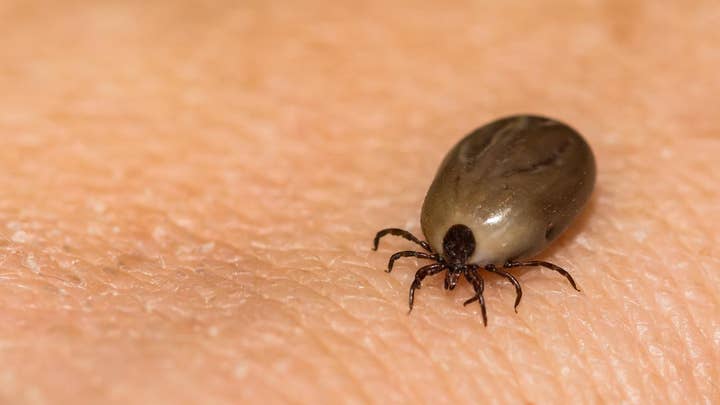
How coronavirus puts Lyme disease patients at risk, according to an expert
Published May 07, 2020
Get the latest news on coronavirus and more delivered daily to your inbox. Sign up here.
Though anyone can develop a COVID-19 infection if they are exposed to the novel coronavirus, health officials have continued to stress that some groups of people — namely those who are older or have underlying health issues — are particularly at risk for severe infection should they fall ill.
Included in that group are Lyme disease patients, Dr. Raphael Kellman, founder of Kellman Wellness Center, told Fox News.
CLICK HERE FOR FULL CORONAVIRUS COVERAGE
“Patients who have Lyme disease have a severely impacted immune system. A big component of Lyme disease is a hyperactive immune system that is always in a state of inflammation,” he explained, noting this factor, in particular, could make these patients more at risk for severe illness.
With some 300,000 Americans diagnosed with this tick-borne disease every year, and with summer right around the corner, read on for a look at how Lyme disease patients could be adversely impacted by the ongoing COVID-19 epidemic in the U.S.
The following has been edited for length and clarity.
Fox News: Why are Lyme disease patients considered to be at higher risk?
Kellman: Patients who have Lyme disease have a severely impacted immune system. A big component of Lyme disease is a hyperactive immune system that is always in a state of inflammation.
The coronavirus turns our own immune system against us. It activates our immune system and it overly produces different cytokines, which is further activating the immune system. Coronavirus causes a cytokine storm and overproduction of cytokine, causing much of the damage we see in coronavirus patients, such as pulmonary lung damage and pneumonia that ensues. The inflammation could be a component of the cardiovascular and neurological dysfunction, such as headaches and other neurological manifestations that we see in coronavirus patients as well.
Lyme disease patients are faced with similar neurological symptoms, like coronavirus patients, such as pain, headaches, brain fog, etc. People who have Lyme disease are more susceptible because of their inability to fight off disease. Their immunity isn’t as strong in killing viruses and microbes. People with Lyme disease are at a greater risk of incidence and severity of coronavirus.
Fox News: What concerns do you have as tick season ramps up, coinciding with the ongoing coronavirus epidemic?
Kellman: We have to be very vigilant this tick season, more so than any other year, so that we prevent Lyme disease from developing. We also have to take a more proactive stance in our treatment and prevention of coronavirus, in addition to wearing masks and tracking the virus, there is a whole realm of medicine that is not being seen. It is not only drugs and vaccines that will help us combat this pandemic. There are a plethora of natural compounds that have been shown to help other coronaviruses.
Fox News: What can be done to support those with Lyme disease as the epidemic continues?
Kellman: You want a good assessment of overall health. With Lyme disease, you’re not just dealing with an imbalanced and overactive immune system, but there are also other unhealthy systems in the body.
One way to support good health is to improve the gut microbiome, which plays a profound role in keeping the gut and immune system healthy.
CLICK HERE TO GET THE FOX NEWS APP
We [should also] run a baseline test of vitamin levels and identify deficiencies. Many people have deficiencies and don’t realize it. It’s important to get vitamin D levels checked to make sure you’re in a good range and taking the supplement if you’re suffering from a deficiency. Strong vitamin D levels show you have a lower risk of developing the disease and you’re more likely to survive the virus.
Blood tests are also important to measure the baseline levels of cytokines to see who is at risk.
Zinc and quercetin is a good combination because it is anti-inflammatory and zinc has an antiviral effect. Research in China and the U.S. have found that vitamin C has a positive effect on the coronavirus infection when used both orally and intravenously.
https://www.foxnews.com/health/how-coronavirus-puts-lyme-disease-patients-at-risk
